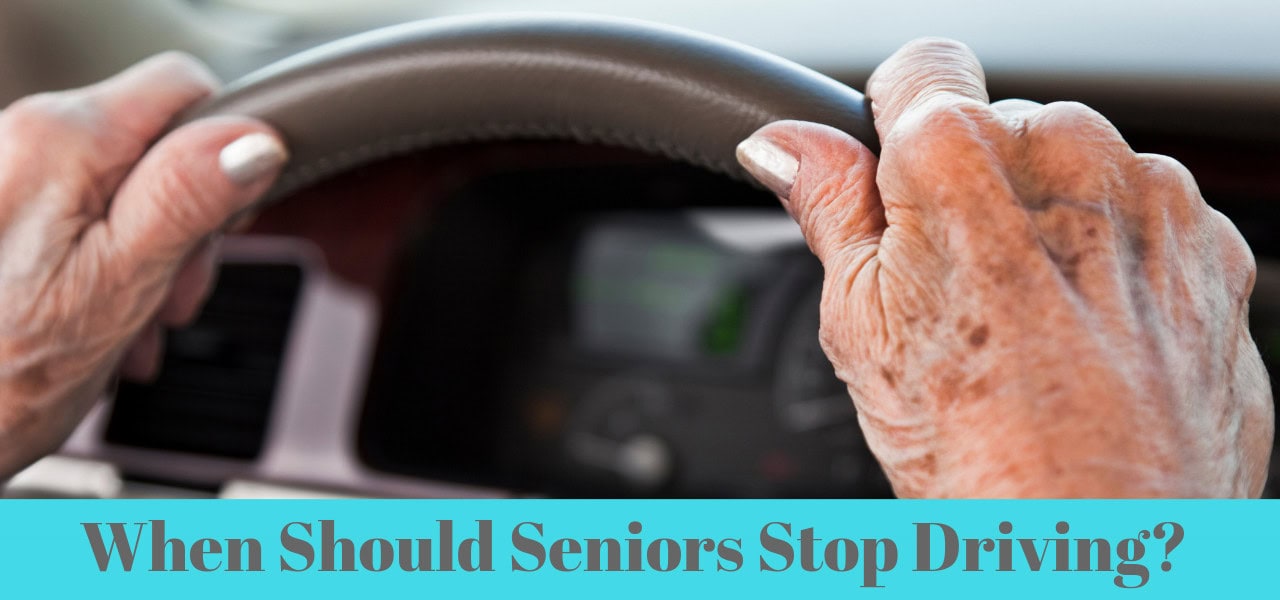
Talking to a loved one about handing over the car keys is a difficult conversation. Because driving is so closely associated with freedom, agreeing to stop driving can feel like a loss of independence. It’s a hard decision, but it’s an important one, and the life of your loved one and the lives of others may be at stake.
Learn how you can know it’s time to talk to your loved one about unsafe driving.
Senior Driving Statistics
When it comes to unsafe driving, there is no age at which every person should hand over the keys. Every person is different and some people are able to drive longer than others. However, as Americans live longer and healthier lives than ever before, seniors are also outliving their ability to drive by 7 – 10 years. AAA reports that while seniors are safer drivers than other age groups, they are also more likely to be injured or killed in traffic accidents and, with the exception of teenagers, seniors have the highest rash death rate per mile driven.
Certain medical conditions and medications can make driving more dangerous for seniors. AAA found that while more than 75% of drivers over the age of 85 take at least one medication, less than 33% acknowledge the potential impact of medication on driving ability. They also found that because of increased frailty, fatality rates for senior drivers are 17x higher than drivers aged 25-64.
Experience Leisure Care Senior Living

The Ackerly at Reed's Crossing
Independent Living, Assisted Living, and Memory Care in Hillsboro, Oregon
10 Warning Signs of Unsafe Driving
Although every person is different and the time to quit driving is an important decision that should be made individually with the support of family and friends, these 10 signs may indicate that it’s time to stop getting behind the wheel.
- Too many ‘close calls’
- An increase in traffic tickets or citations from law enforcement
- Taking medications that may impair driving ability
- Hearing loss
- Vision problems
- Memory problems or cognitive impairment that can cause disorientation and confusion.
- Slowed reflexes and a reduction in range of motion
- Decreased confidence in driving abilities
- Unmanageable arthritis that may affect reflex time and wheel grip
- Unexplained dents or scrapes on cars, mailbox, or garage
Generally speaking, if you think it’s time for yourself or a loved one to hand over the keys, or if they are displaying any of the warning signs, it’s often better to play it safe than sorry.
Fortunately, seniors today have options after deciding to stop driving. From ride-sharing to community buses and family and friends, many municipalities make it possible for seniors to continue their daily routines without the use of their car. Additionally, today’s senior living communities have a wide array of amenities and services that offer group and private transportation services. While you or your loved one may feel that loss of independence sharply at first, a new reality will become a new routine with increased peace of mind for your entire family.
How did you know it was unsafe for you or your loved one to continue driving? What alternate forms of transportation did you begin using to help your loved one get around in a safer way? Share your experiences with us in the comments below.
Find a Leisure Care Community
Better with age, exceptional with us! Come and see how Leisure Care communities are helping seniors rediscover (and sometimes reinvent) themselves.







